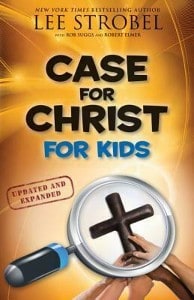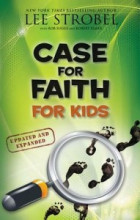John Fuller: As we begin today’s Focus on the Family broadcast, we’d like to tip our hats to the invention that made this program possible.
Jim Daly: That’s right, John. Uh, today is National Radio Day, and I’m glad to say that one recent survey showed that almost 90% of people listen to the radio every day. You know, back in the early 1900s, radio was considered one of the most incredible technologies on earth, used by governments and military forces for navigation, news distribution, and so much more. Uh, today, thousands of Christian radio stations share the Gospel across North America and around the world. A broadcast like ours are a great missionary tool for hard-to-reach locations where hand-cranked radios are the only source of news and information. So, happy National Radio Day. We are very thankful for this invention and how it helps us impact literally millions of lives for Christ around the world, and we thank God for the local radio stations that bring this broadcast to you. Please let them know you appreciate their hard work.
Preview:
Lee Strobel: You know, I really believe that the family is the answer for how we’re gonna equip this next generation to be authentic, devoted followers of Jesus Christ because I’m convinced this next generation has the potential to be the greatest generation that has ever lived for Jesus Christ.
End of Preview
John: You’ll hear more from Lee Strobel on how to train your children or your grandchildren to stand up for their faith. Welcome to Focus on the Family with your host, Focus president Jim Daly, and I’m John Fuller.
Jim: John, we have a great message to share from Lee Strobel, and I think it will be particularly encouraging for dads to learn how important their role is in shaping the faith of their children. As many of you know, Lee is a best-selling author of over 40 books, including The Case for Christ series. Uh, he was an award-winning journalist before he converted from atheism to Christianity after spending two years investigating the claims of Christ. He’s the founding director of the Lee Strobel Center for Evangelism and Applied Apologetics at Colorado Christian University.
John: And that is right up the road, here, in Denver, Colorado, and Lee’s a great friend to this ministry. Let’s go ahead and hear, now, from Lee Strobel, speaking at an event sponsored by Focus on the Family.
Lee: Well, good morning.
Audience: Good morning.
Lee: It’s great to- a- actually, I was gonna start out by saying how great it is to be here, but I gotta be totally honest with ya and say I’m glad to be anywhere after what happened to me in Little Rock, Arkansas. I went to Little Rock to speak at a charity event, and this pastor picked me up from the airport, and he’s driving to the event and we’re chattin’ along the way, and he says, “Yeah,” he said, “I- I told the young woman in our church, I said Lee Strobel’s gonna speak tonight.” She said, “Oh, the guy who wrote The Case for Christ? Is he still living?” (laughing)
So, I’m glad to be anywhere. I’m glad to be alive after that. But, uh, by the way, I- I, you know, I- I look out and I see the lanyards, and I’m thinking, “Wouldn’t the world be friendlier if we just wore those all the time?”
Audience: (laughing)
Lee: W- wouldn’t it be friendlier? Well, we had an embarrassing thing happen. We were doing an event and, uh, we printed up, like this, you know, name tags with everybody’s first name real big so people could greet each other. People came in, they got their name tag, they went into the conference. We thought everything worked great, til about halfway through the first day. And this woman comes up to the registration desk and she’s all upset. We said, “What’s wrong?” She said, “My name has been misspelled.”
And we’re thinking, okay, is that really (laughs) a big deal? You know. We said, “What’s your name?” She said, “My name is Sylvia,” and sure enough, she’d been walkin’ around all day with a name tag that said “saliva.” (laughing) She was spitting mad, I’ll tell ya that. I- I-
Audience: (laughing)
Lee: Anyway, um, so, Leslie is here. Leslie and I just g- uh, came in from Houston, Texas. Any Texans here?
Audience: (cheering)
Lee: Yeah! All right. Yeah. We moved down to Texas few years ago, uh, to be near their- our two oldest grandchildren, and, uh, they assigned us our telephone number for our home telephone. You’re probably thinkin’ yeah, big deal. It was a big deal to us, ’cause no kidding, when we lived in Chicago, the phone number they gave us was one digit away from the cab company.
Audience: Ugh.
Lee: Seriously. So, Saturday night, 2:00 in the morning, these drunk guys at bars would call for a cab, they’d misdial, our phone would ring. It was bad enough getting waken up in the middle of the night, but then you had to get up, get dressed, get in the car.
Audience: (laughing)
Lee: But such as, I think we got a good number this time. But, uh, so anyway, my grandkids moved down there a couple years ago to Houston, and they’re total Texans. As you know, Texans always- Texas got a special culture, and my granddaughter, Abigail, she is total Texan. She’s got the cowboy hat. She’s got the cowboy boots. She- she- she horseback rides. Uh, but the reason we know she’s a total Texan, one night at dinner, she said, “Uh, bapa, could I pray for dinner?” I said, “Sure,” so this is what she prayed. “God is good. God is great. Thank you for the Lone Star State.” (laughing) That’s a true Texan. That’s a true Texan right there.
So, anyway, I moved to Texas. I’m from Chicago. I don’t know anything about Texas. So, I bought a book called, How to Talk Texan.
Audience: (laughing)
Lee: They have a book, so I read it. Couple things I learned. First thing, difference between y’all and all y’all.
Audience: (laughing)
Lee: All y’all’s plural, if you didn’t know. I never thought about it, but it makes sense. Right? But the thing I learned about talking Texan that I like the most, in Texas, if you wanna say “Thank you” to someone, you can say “Thank you,” or you can say, “I ‘preciate ya,” and that’s what I wanna say to you this morning. I ‘preciate ya I ‘preciate ya being here today. I ‘preciate your prayers for Focus. I ‘preciate your support of Focus. I ‘preciate ya.
And so, I was gonna talk, this morning, about the case for the family, but then I thought I’m preachin’ to the choir. (laughs) I- does- does anybody here not believe that God has established the family a- as the integral unit upon which culture is based? No, I think we’d all agree to that. So, I wanna kinda focus on a particular aspect of the family. I wanna focus on how the family is the primary way that faith is transmitted through the generations.
Colossians 2:7 says, “Let your roots grow down into Christ and let your lives be built on him. Then your faith will grow strong in the truth you are taught, and you will overflow with thankfulness.” You know, I mentioned my granddaughter, Abigail, and her prayer. She’s 14 years old, sh- going on 22, and, um, thi- this is- (laughs) this is a picture from last weekend when Abigail was baptized-
Audience: Aww.
Lee: … as a new follower of Jesus, following in the footsteps of her sister, who had come to Christ earlier and was baptized. And- and, uh, you know, w- what is better than seeing children and grandchildren come to faith in Christ and be baptized? I mean, we all wanna leave a legacy, don’t we? And yet, the most important legacy we can leave is a spiritual legacy that we leave through our family. But how can we do that in- in our increasingly skeptical and- and even hostile, uh, culture that we live in?
I met a guy recently. He said his granddaughter was in kindergarten, and she was taunted and bullied on the playground at kindergarten at a public school because she believes in God. And there’s no doubt that if your kids and if your grandkids come to faith in Christ, that they will be confronted and even marginalized because of their faith. But, you know, the researchers at the University of California at, uh, Santa Barbara did a landmark, multi-generational study over several decades, and they concluded that, you know what, families really (laughs) do a good job of passing down religious beliefs to their kids. And they said that hadn’t changed in the 35 years that they studied in their study.
However, they said one of the most interesting findings was that for passing along spiritual beliefs, having a close bond with one’s father is much more important than having a close bond with one’s mother. In fact, that’s not just true in Christianity. It’s true in- in virtually every world religion, that the father relationship is more important, in terms of adopting the family’s faith, except, interestingly, in Judaism. And in Judaism, it’s the- the mother’s influence.
Um, but psychologists have known for a long time that the fathers are so important in passing down faith to their children. In fact, the absence of a father, or, uh, an abusive father, uh, is a well-known factor in people walking down a path toward atheism. Paul Vitz, who’s a psychology professor at New York Universe, us- actually studied the lives of famous atheists through history, Camus, Sartre, Nietzsche, F- uh, Freud, Voltaire, Wells, Hume, Russel, um, Feuerbach, um, O’Hare, all of ’em, and every single one of ’em either had a father who died when they were young, or abandoned their mother when they were young, or with whom they had a terrible relationship. And the implication is why would you wanna know a Heavenly Father if your earthly father has abused or let you down or hurt you?
I believe the bad relationship I had with my father was one of the reasons I ended up in atheism for much of my life. I- I was an unwanted pregnancy, uh, in my father’s eyes. Uh, he looked at me on the eve of my high school graduation and said, “I don’t have enough love for you to fill my little finger.” And so, you know, I like to believe it is my intellectual questions that took me down the path toward atheism. I believe the psychological issues were every bit an influence.
My friend, Josh McDowell, had a similar experience. His dad, though, was a violent alcoholic, and Josh said to me, he said, “Lee, I grew up believing that fathers hurt.” He said, “People would tell me, ‘There’s a Heavenly Father who loves you,’ but that didn’t bring me joy. It brought me pain because I couldn’t discern the difference between a Heavenly Father and an earthly father.” And Josh became, what he described himself as being, an ornery agnostic until his investigation of Christianity told him it was true.
And same with me. I mean, I was an atheist til I investigated the evidence and became convinced that Christianity is true, and you know how I dealt with the issue of this painful relationship with my father? I took a queue from C.S. Lewis, who said, “Can you imagine what a perfect father would be like?” Imagine from a- what would a perfect father be like? He’d be loving, he’d be gracious, he’d be kind, he’d be your biggest cheerleader, he’d pull you up in his lap and give you a hug. So, that is a picture of our Heavenly Father.
Audience: Amen.
Lee: And when I was able to see that, it helped heal me of the pain of my relationship with my earthly father. So, dads, obviously, are really important if we’re gonna leave a spiritual legacy through our family, but here’s a fascinating tidbit from that study. What really matters, if you wanna pass along your faith to your children and grandchildren, what really matters, according to this study published by Oxford University Press, what really matters is the temperature of your relationship with your children.
The study said a fervent faith cannot compensate for a distant dad. Said a father who is an exemplar, a pillar of the church but doesn’t provide warmth and affirmation to his kid, does not have kids who follow him into the faith. Isn’t that interesting? What a reminder for dads and granddads. The study found that even if you read your Bible every day, even if you prayed every day, even if you went to church every week, your children will probably not be attracted to your faith unless you have a warm and an affirming relationship with them. That’s the key.
Well, not only is this father relationship with children important in leaving this spiritual gra- legacy, but grandparents and parents also need to help kids understand that it is okay for them to have questions and even doubts about their faith. Nancy Pearcey, professor at Houston Baptist University, said this, “In studies asking why young people left their family religion, their most frequent response was unanswered doubts and questions.” The researchers were surprised. They expected to hear stories of broken relationships and wounded feelings, but the top reason given by young adults was that they did not get answers to their questions.
John: You’re listening to Lee Strobel on today’s episode of Focus on the Family, and this reminder, just can get a copy of his book, The Case for Christ for Kids. Uh, we’ve got that here at Focus along with the CD of this broadcast. Just call 800, the letter A and the word FAMILY. 800-232-6459, or you can donate and request those resources focusonthefamily.com/broadcast. Let’s go ahead and return, now, to more from Lee Strobel, on Focus on the Family.
Lee: I mean, we need to help our kids and our grandkids understands, it is okay to have questions. It’s even okay to have some doubts. Jesus didn’t get upset when people brought questions to Him. He didn’t slam dunk anybody that came to him with a sincere question. You think of John the Baptist. If anybody should have known the identity of Jesus being the unique Son of God, it was John the Baptist. He once pointed to Jesus and said, “Behold, the Lamb of God who takes away the sin of the world.”
He baptized Jesus. He- he saw the heavens open up. He heard the voice of their Father, saying, “This is my Son in whom I’m well pleased.” John the Baptist once pointed to Jesus and said, “I have seen and I testify, this is the Son of God.” But then what happens? He gets arrested. He gets thrown in prison. Question. What happens to a lot of us when tough times come? Doubts begin to creep in. Don’t they? And that’s what happened to John. Now, he’s sitting in prison. Now, he’s not so sure. Now, he’s got some hesitations, but what does he do? He gets a couple friends together. He says, “Go track down Jesus and ask him, once and for all, point-blank, ‘Are you the one we’ve been waiting for or are we to wait for somebody else?’”
So, they tracked down Je- “Hey, Jesus. Do you know John? Well, he got busted, and now, he’s freakin’ out. So, would ya just tell us, once and for all, are you the one we’ve been waiting for or are we to wait for somebody else?” Now, here’s a deal. How does Jesus react to this? Does Jesus get angry? Does He say, “How dare John, of all people, have the tomarity to express a hesitation about my identity?” No. Jesus says, “Those followers of John, go back to John and tell him what you have seen and heard. The blind receive sight, the lame walk, those who have leprosy are cured, the deaf hear, the dead are raised, and the good news is preached to the poor.”
In other words, go back to John and tell him about the evidence you’ve seen with your own eyes that convinces you that I am the one I claim to be. So, they go back and they tell John, but here’s the deal. Has this now poisoned John in the mind of Jesus to the extent that John an- no longer has a role in the kingdom of God? No. It’s after this incident that Jesus gets up before a group and He says, “Among those born of women, there’s no one greater than John.” John the doubter. John the guy who dared to ask a question.
Friends, we gotta help our kids understand it’s okay to have questions. It’s even okay to have doubts, as long as you do what John did and you pursue answers. Because guess what? They’re gonna find there are good answers to the toughest questions of life and faith. See, we need to cultivate honest environments in our homes, in our churches, in our student ministries, in our Christian schools, where young people feel free to express hesitations and doubts, and where we can help them wrestle through the difficult areas of faith.
Dave Kinnaman, a great researcher with the Barna Organization, interviewed 5,000 young people, and this was his conclusion. “This generation wants and needs truth, not spiritual soft serve. This is a generation,” he said, “that is hungry for substantive answers to life’s biggest questions.” I mean, we need to help our young kids understand that- that, when it comes to science, that science and faith are not at war, but science, when done right, points toward the existence of a Creator who matches a description of the God of the Bible, and that a series of discoveries over the last 50 years in cosmology, physics, biochemistry, and genetics tells us that there is a Creator, and He does match the description of the Bible.
My friend, Dr. James Tour of Rice University, one of the greatest scientists in America, in fact, he’s one of the 50 most influential scientists in the entire world, said this to me. He said, “Lee, only a rookie who knows nothing about science would say that science takes away from faith.” He said, “If you really study science, it will bring you closer to God.” And we need to help our kids understand in history, that the facts of history point powerfully and persuasively toward Jesus, not only claiming to be the Son of God, but backing up that claim by returning from the dead.
In fact, (laughs) one of my heroes, when I was a student at Yale Law School, was the greatest defense attorney in the world, according to the Guinness Book of World Records. His name is Sir Lionel Luckhoo. Um, get this. If you’re an attorney, this’ll blow your mind. Sir Lionel Luckhoo, as a defense attorney, won 245 murder trials in a row, either before a jury or on appeal.
He’s in the Guinness Book of World Records, the greatest lawyer who ever lived. Knighted twice by Queen Elizabeth. Became a member of the highest court of his land, but he was a skeptic about the resurrection of Jesus until he took two years of his life and investigated the historical evidence, and this was his conclusion. He said, “I say unequivocally, that the evidence for the resurrection of Jesus Christ is so overwhelming, that it compels acceptance by proof, which leaves absolutely no room for doubt.” This, from the greatest defense attorney who ever lived.
I mean, we need to help our kids understand that we, as Christians, have an unfair advantage in the marketplace of ideas. We have truth on our side. Now, what does that mean? Does that mean we should go out debating people? No, not necessarily. I’m not a debater. You’re probably not a debater. But it does mean that we can dialogue. We can have conversations. We can have friendships. We can have relationships that, when we sit down with our kids and with our grandkids, that we can do more listening than talking. We can ask more questions than force-feed answers.
Where we don’t have to pretend we’re smarter (laughs) than we really are. Where we’re more loving and understanding. We need to help kids understand at a young age that our faith is not built on fairy tales and make-believe and wishful thinking, but on a solid foundation of truth. And we need to check what are our Sunday schools teaching our kids. What are our Sunday schools teach- do you know what your church is teaching your kids?
Natasha Crain, who’s an expert in this area, said, “The sad truth is that many Evangelical Sunday school programs are unintentionally teaching our kids how to become secular humanists.” In other words, they’re creating nice kids who don’t really need God. That’s because many Sunday schools are teaching values. So, they’ll- they’ll teach the story of David, and they’ll talk about the value of courage. They’ll teach the story of Moses, and they’ll teach the value of leadership. But guess what? Secular humanists believe in courage. They believe in leadership.
So, many of our Sunday schools are not teaching kids why Christianity is true, and why it makes sense to believe the Bible, and how we know that Jesus is the unique Son of God. They’re telling kids stories from the Bible, but they’re not educating kids on why we can trust the Bible as being the Word of God, and the result, we get nice kids who are not tethered to the truth of Christianity.
I mean, this stuff is not too complicated for little kids, and that’s why we ended up doing children’s books on my- all my case books, Case for Christ and Case for Faith. A- n- w- we did it for little kids because they get this stuff. They understand it. It ca- it can be communicated in a way that they understand, and we need to educate our children and our grandchildren right through Sunday school, right through student ministries, right through high school, and into college so that they have a strong faith and a vibrant faith that’ll withstand the cultural tests to which it will be put.
You know, I really believe that the family is the answer for how we’re gonna equip this next generation to be authentic, devoted followers of Jesus Christ, because I’m convinced this next generation has the potential to be the greatest generation that has ever lived for Jesus Christ. Why? Because the great generations are tested by adversity. Isn’t that right? The greatest generations go through tests of adversity. Remember in eastern Europe when the iron curtain was down, and yet, the church flourished, even where it was illegal, and somebody asked a pastor, “Why is that?” And he said, “Because the church is like a nail. The harder you hit us, the deeper we go.”
Adversity builds strong spiritual generations and our children and our grandchildren are gonna have adversity in this culture that you and I haven’t had. But I believe, with the help of strong, vibrant families, and dads who care and spend time with their children and love them, we can create a generation that will go down in history as the greatest one ever to live for Jesus Christ. That is a goal I think we should all (laughs) get behind, for God’s glory.
So, let me pray. Father, thank You for this institution You have given us of the family. Thank You for the way that our faith can percolate through the generations, and we do pray for these upcoming generations, the challenges that they will face. We pray that You will drive their faith deeper and deeper to Your glory. Pray this in Jesus’s name. Amen.
John: Well, that was Lee Strobel speaking at an event sponsored by Focus on the Family.
Jim: Uh, John, Lee really hit it out of the park, and his message sums up the essence of our goal, here, at Focus on the Family, and I hope your goal too. We want to equip and empower your family to have a strong faith, and to pass that faith along to your children in a way that ensures they’ll receive it and live it out. And Lee is right, we live in a culture that is increasingly hostile to our faith, and we see that in the news on a regular basis. So, helping our children really know what they believe and why is even more critical today. They need to be able to defend their faith at school and the workplace and maybe even in a courtroom someday. If you have children or grandchildren between the ages of eight and 12, I’d strongly recommend you get a copy of Lee Strobel’s book, The Case for Christ for Kids. In the book, Lee answers the questions young people ask most about our faith and presents the facts of Jesus’s life in an understandable way. It’s an excellent resource, and I’d like to send the book out to you when you make a monthly pledge to Focus on the Family to help us continue working hard each and every day to help your family and others thrive in Christ. One way we’re doing that is by offering free faith-building resources like the Live It challenge. And we create a new challenge every month with specific activities that will help you and your children develop a more vibrant Christian walk while building lasting Biblical habits. Come check it out at our website.
John: And you can look for the Life It challenge details and also that book by Lee Strobel at focusonthefamily.com/broadcast.
Jim: So, please, join our support team, and when you make a monthly pledge of any amount, we’ll send you a copy of The Case for Christ for Kids. And if you can’t make a monthly commitment right now, we understand. We’ll send this book out to you for a one-time gift of any amount.
John: Well, again, our website is focusonthefamily.com/broadcast or call us, 800 A-FAMILY. 800-232-6459. On behalf of Jim Daly and the entire team, thanks for joining us today for Focus on the Family. I’m John Fuller inviting you back as we, once more, help you and your family thrive in Christ.




















